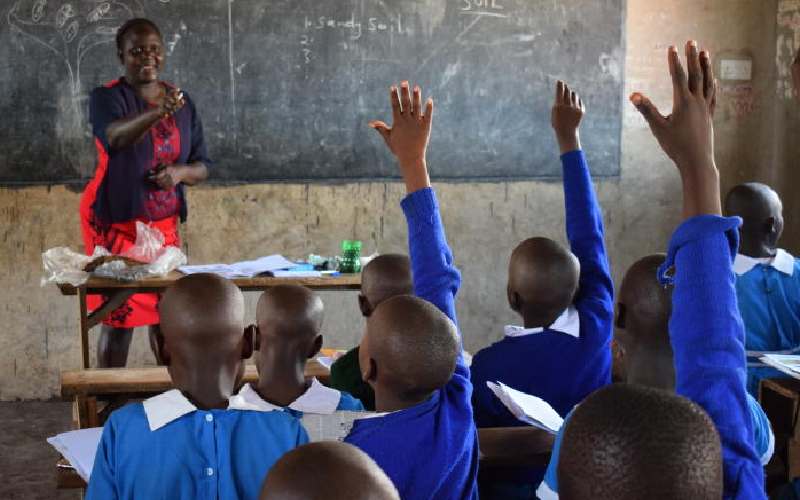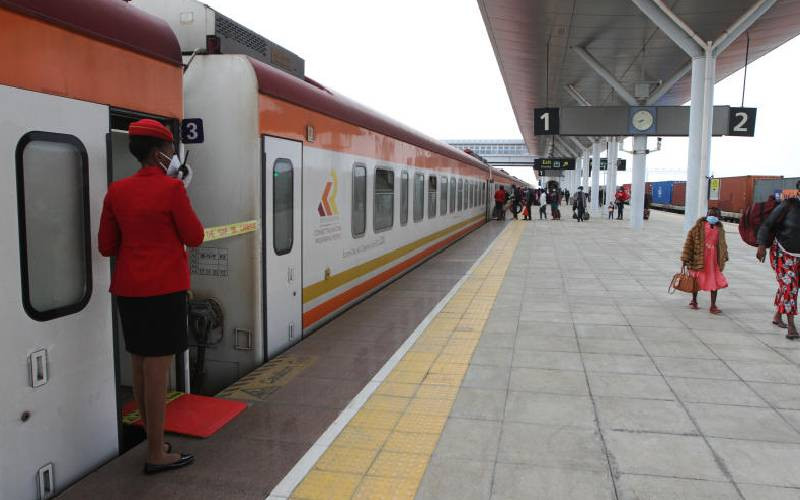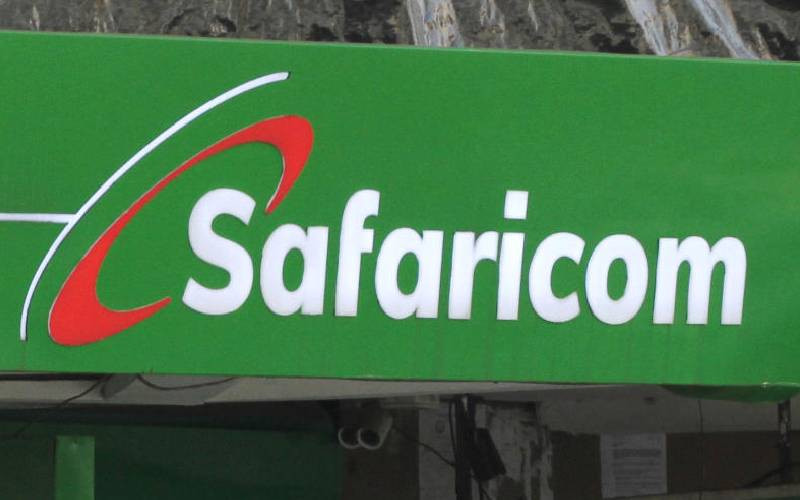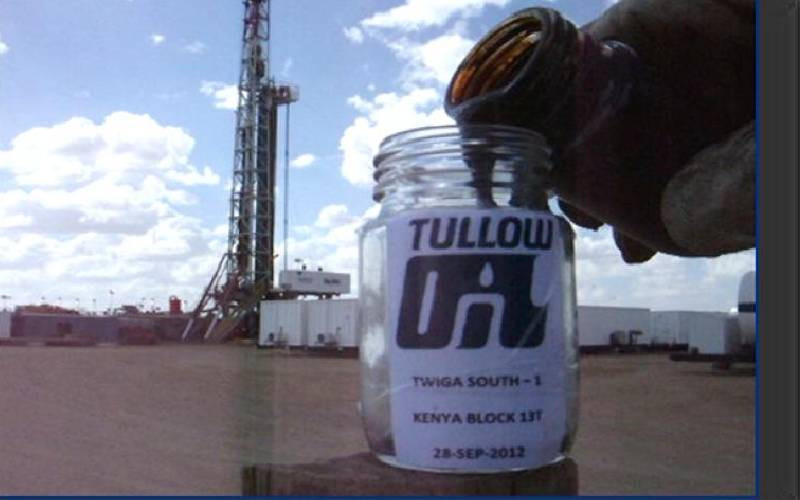×
The Standard e-Paper
Kenya’s Boldest Voice

Ms Evaline Ogesa, a teacher at Shauri Yako Primary school in Homa Bay town teaches grade four pupils agriculture on January 10, 2020. [James Omoro, Standard]
The President has directed the National Treasury to engage Parliament to appropriate Sh8 billion for the construction of 10,000 classrooms in public schools to provide additional learning space for one million Junior Secondary students.







